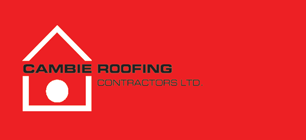Insurance rates continue to rise every year, and property owners can feel powerless, but there are some things you can do to save money. Since changes in the structure of your property will affect your insurance rates, you can work something out to lower your strata insurance premiums.
Some home improvement projects aren’t exclusively meant to increase the value of your property; they also increase protection and security. You know by now that security and protection are determining factors in deciding how much you’re paying for your insurance premiums.
Investing in a New Roof
The roof arguably has the most significant impact on your strata insurance rate. No other home feature compares to the structural value of the roofing system; so, when a massive storm wreaks havoc to your property, the first in line for repairs is the roof.
Insurance companies know all too well how a new roof dictates the insurance coverage they offer to their clients. If you reside in an area where hailstorms, tornadoes, and wildfires are commonplace, then having an old roof usually corresponds to limited coverage. Investing in a new roof reinforced with special protection increases your chances of extending the coverage.
Roof replacement doesn’t come cheap, and a DIY approach may cost you more. Since it is an investment to improve your property and lower your strata insurance, you’re better off hiring a professional roofer. Reputable roofing companies provide work guarantee and product warranty – two things you don’t get when you’re planning to replace the roof on your own.
Roof-Related Property Damage
A strata owner is responsible for the protection of the common property from possible damage, and there’s more to this than just comfort and security in your dwelling. Being knowledgeable about the common residential strata insurance claims is part of that responsibility. Incidentally, many of the possible risks to the property are related to the roofing structure:
1 – Water Damage
Almost 40% of residential strata claims each year involves water damage, i.e., a leaky roof and clogged gutters. The problem with most water-caused damage is that they’re difficult to spot. So, insurance companies are wary when the property has an old roof with apparent signs of deterioration and damage.
There’s good reason to work with a roofing company to fix your roof if you want to lower your strata insurance. Insurance companies can’t help but worry once they see a roof in terrible condition. Fixing your roof with the help of an expert roofer costs you money, but you end up benefiting from it in the long run.
2 – Weather-Related Damage
The roof protects everything and everyone underneath it. In so doing, it bears the brunt of nature. If you reside in an area with extreme weather conditions, your roof most definitely has a shortened lifespan.
Did you know that almost 30% of strata insurance claims every year are related to weather-caused damage to the roof? The list includes hailstorms, heavy snow, strong winds, and torrential rains. Although you expect to pay a premium just because of the weather conditions in your location, you could be adding more to that if your roof is in bad shape.
A roofing company helps by improving the condition of your roof (or replace it) to give no reason for the insurance company to ask for a premium. For some people, it doesn’t make sense since they’d be spending money on a new roof; but then again, consider it as a long-term investment instead.
Other Ways to Reduce Your Premium
- Refrain from making small claims – Don’t forget that the more claims you make, the higher the premium becomes. Some property owners make claims every year, not realizing that doing so increases their premiums and excess. If possible, veer away from claiming strata insurance for minor repair and maintenance needs. The best alternative is to incorporate those costs in your yearly budget.
- Come up with a concrete maintenance plan – Insurance companies are well aware that the majority of strata insurance claims are a consequence of the owner’s lack of desire to maintain his/her property. To reduce your premium, show proof of a believable maintenance plan.
- Minimize the risks – If you put the effort in minimizing the chances of property damage, you reduce the possibility of an emergency repair. It means you avoid making a claim. If you’re unsure how to mitigate the risks, you can tap the services of a property risk surveyor who furnishes a risk management plan at a reasonable cost.
Update Your Policy
Many property owners fail to acknowledge the importance of updating their strata insurance policy. If you don’t take time to read your policy, you will regret it later. Be reminded that insurance companies update the rate during the renewal each year. So, if you fail to mention any home improvement project, you will have to face a stiffer premium.
A horde of factors contribute to strata insurance premiums and excess, but there are also are ways to lower them. Regardless of what happens in the insurance industry, your job is to keep your building or property in the best condition possible to increase the chance of getting a lower premium.


